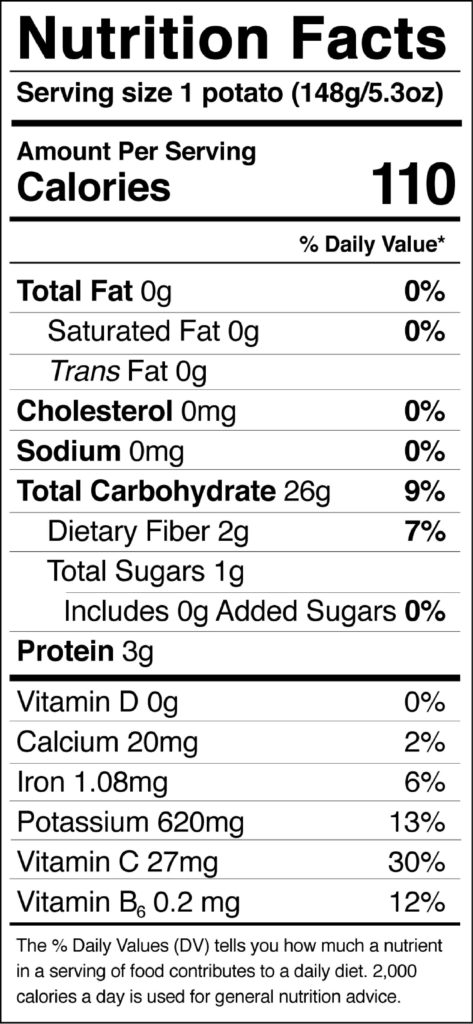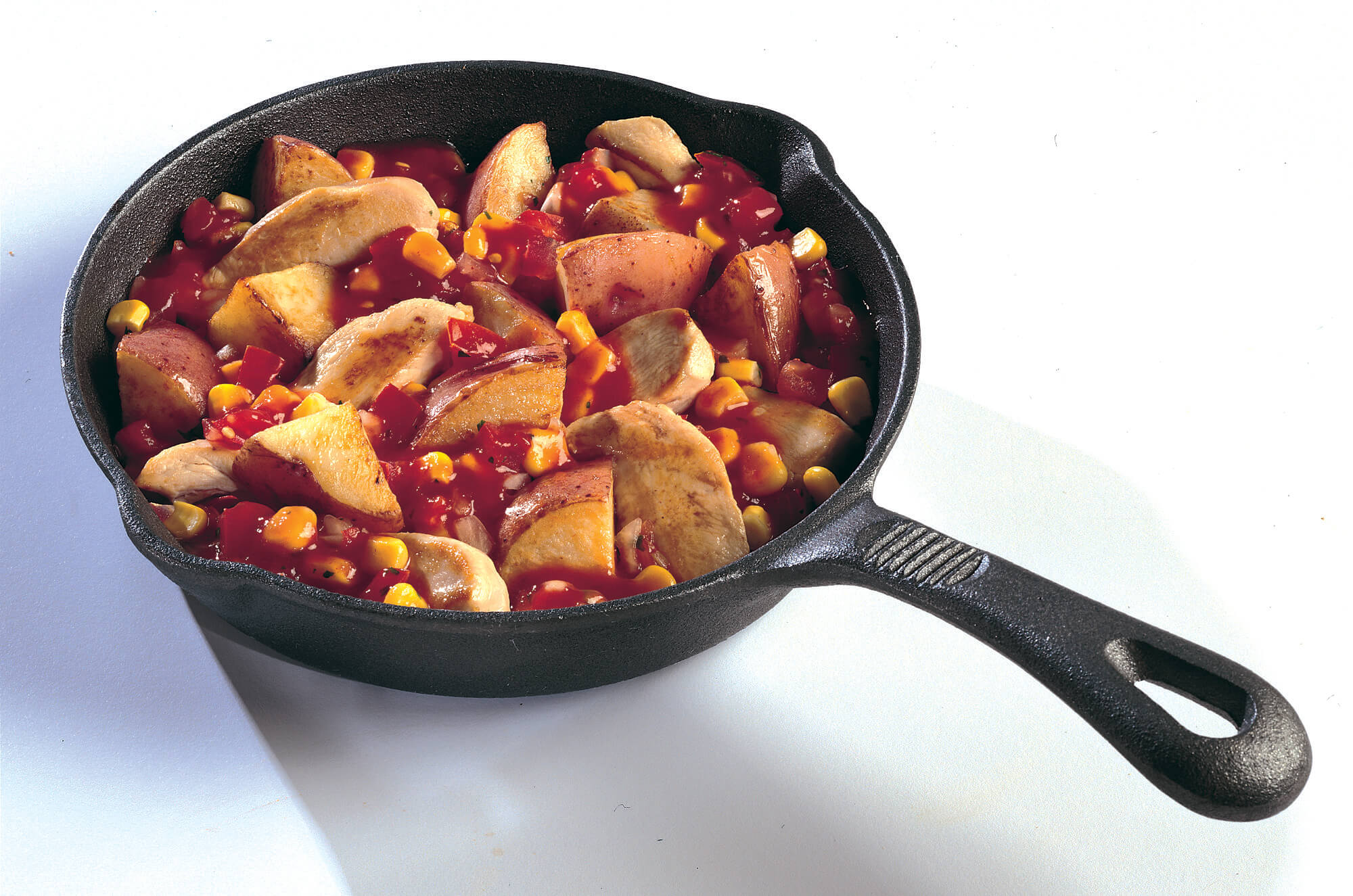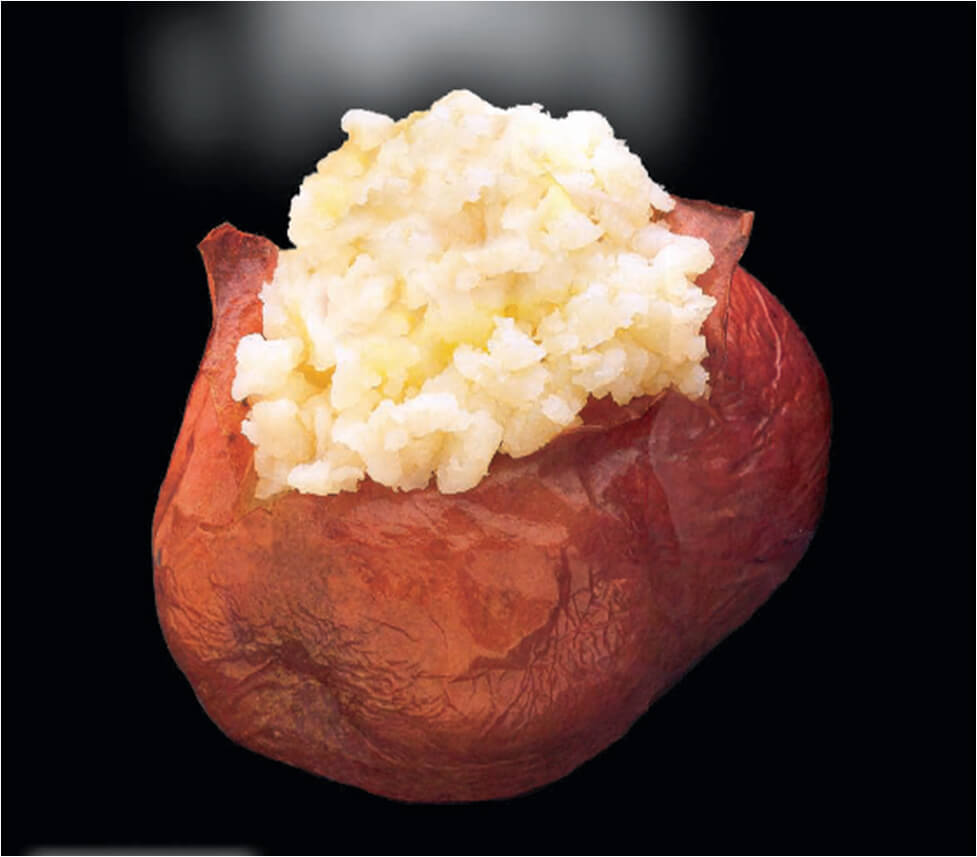Red River Valley Potato Nutritional Information
As one of America’s favorites foods, potatoes make it on to our plates more than any other side dish. Thankfully, they are just as nutritious as they are delicious. In fact, a medium size potato has only 110 calories with no fat or cholesterol. Plus, it’s a great source of potassium, fiber and Vitamin C, as well as protein, Vitamin B, calcium, iron and more. So next time you have a potato, enjoy it, and know you are eating one of nature’s healthiest foods.
Potatoes for Athletic Performance
The difference between you and your best comes down to how you fuel. Potatoes provide the complex carbohydrates, potassium, fiber and vitamin C you need to perform better than ever before.
A by-the-numbers look at how potatoes can power athletic performance¹:
26 grams of carbohydrate: Count on the quality carbs in potatoes for optimal mental and physical performance.² ³ Plus, potatoes contain as much if not more of several essential vitamins and minerals than spaghetti, brown rice or whole wheat bread (compared on a per-serving basis).
620 Milligrams of Potassium: With more potassium than a medium-size banana, potatoes are perfect for aiding muscle, cardiovascular and nervous system function during long endurance events.
110 Calories for Energy: Easily digestible and more energy dense than any other popular vegetable, potatoes are a good choice to fuel the demands of racing a triathlon.
(1) Nutritional data is based on a medium-size 5.2 ounce skin-on potato. (2) Nutrition and Athletic Performance. Position of the Academy for Nutrition and Dietetics, American College of Sports Medicine and the Dietitians of Canada. Med Sci Sports Excerc. 2015; 48:543-568). (3) Burke LM, Hawley JA, Wong SH, Jeukendrup AE. Carbohydrates for training and competition. J Sports Sci. 2011; 29 (Suppl 1): S17-27). (4) Gelibter A, et al Satiety following intake of potatoes and other carbohydrate test meals. Ann Nutr Metab. 2013; 62:37-43



 Red River Valley Potato Size Guide
Red River Valley Potato Size Guide